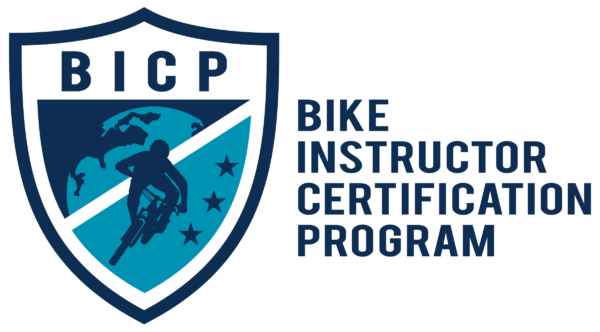Thank you for your interest in a BICP course. Courses are usually scheduled 2 to 3 months in advance. If you provide three possible dates, in order of preference, we will do our best to accommodate your course needs.
SITE REQUIREMENTS
Bathroom facilities
Parking
A water source for filling water bottles and hydration packs is needed adjacent to or very close to the skills area
Skills area must offer shade via trees, covered areas, portable pop-up tents, etc., as participants will be spending 8-10 hours outside on bikes each day
A covered pavilion with picnic tables is ideal for discussion and worksheet portions of the training
Ideally, the site is centrally located in relation to lodging and restaurants since participants will need options for lunch with only a 30-minute window for driving to and returning from lunch. Should be no more than a 1-hour drive from the airport.
*A covered area or building that can accommodate participants and bikes must be available in the case of inclement weather.
SKILLS AREA REQUIREMENTS
A flat area approximately the size of a basketball court at a minimum (40′ x 80′) that is grass, cement, or dirt – something that provides good traction as riders will be doing lots of circling and turning around in this area. Grass or artificial turf is preferred, with no gravel.
SKILLS FEATURE REQUIREMENTS
Roll Down
Roll Down features such as a log, large flat rock, or small drop.
Size requirements
- Level 1 – 12 inches (30 cm) high
- Level 2 – 18 inches (48 cm) high
- Level 3 – 36 inches (90 cm) high
The Roll Down feature must be a ½ mile or less from the skills area.
For Level 2, we require two sizes, and for Level 3, three sizes.
Drops
Size requirements
- Level 1 – 12 inches (30 cm) high
- Level 2 – 18 inches (48 cm) high
- Level 3 – 36 inches (90 cm) high
For Level 2, we require two sizes, and for Level 3, three sizes.
Non-technical run-in and landing (sloped landing preferred).
If the nearby trail does not offer this type of feature, a made structure (such as a 2×8 ft plywood covered box with a ramp) will need to be constructed.
If needed, a materials list with construction guidelines can be provided before the course.
Climbing Skills
- Small dirt or grass hill with a gradually increasing grade 20-40 ft in length.
Steep Terrain
- 45 degrees or more, at least 20 feet in length
- Level 1 – non-technical Blue Trails
- Level 2 – technical Blue-Black Trails
- Level 3 – technical Black Trails
Corners
- Approximately 90-degree turn (up to 180 degrees)
Berm Corners
- BMX or bike-park-style bermed corner
- Wide radius turns. Ideally 10-15’ radius and a 4-6’ high
- Ability to ride in either direction or both left & right berm turns
Repetitive Rollers or Pump Track
- Three or more pump track style rollers
Jump Feature
- BMX or Bike Park style tabletop jump
- Low to medium transition of 20-25 degrees
- Approximately four feet tall, 4-6’ long deck
- Approach and exit are clear of obstacles or tight turns
Elevated Features
- Level 1 – 2 x 6 flat board
- Level 1 – elevated feature 4 inches off the ground (i.e. Skinny)
INCLEMENT WEATHER PLAN
In the case of inclement weather, a backup plan for on-bike skills training is required.
Examples are covered pavilions, a large barn, a ballroom-sized activity room, etc. approximately 60-80 square feet of a protected area.
HOST DUTIES
Individuals, businesses, land managers, and program directors can all serve as course hosts. The host for a BICP course is the point of contact and our on-the-ground local knowledge source. A host’s duties are minimal but essential to ensure a successful certification event.
Some examples of host duties are:
- Confirming that the chosen site meets all the BICP requirements.
- Gaining any permissions needed to use the land and providing permit fee information to the BICP.
- Pre-event communication with BICP’s Instructor Trainer to confirm details.
- Receive course handout paperwork and deliver it to the Instructor Trainer (IT) upon his/her arrival.
- Give the IT a tour of the area that will be used for the certification course.
- Make sure any facilities that the BICP will be utilizing are unlocked prior to the course start each day.
